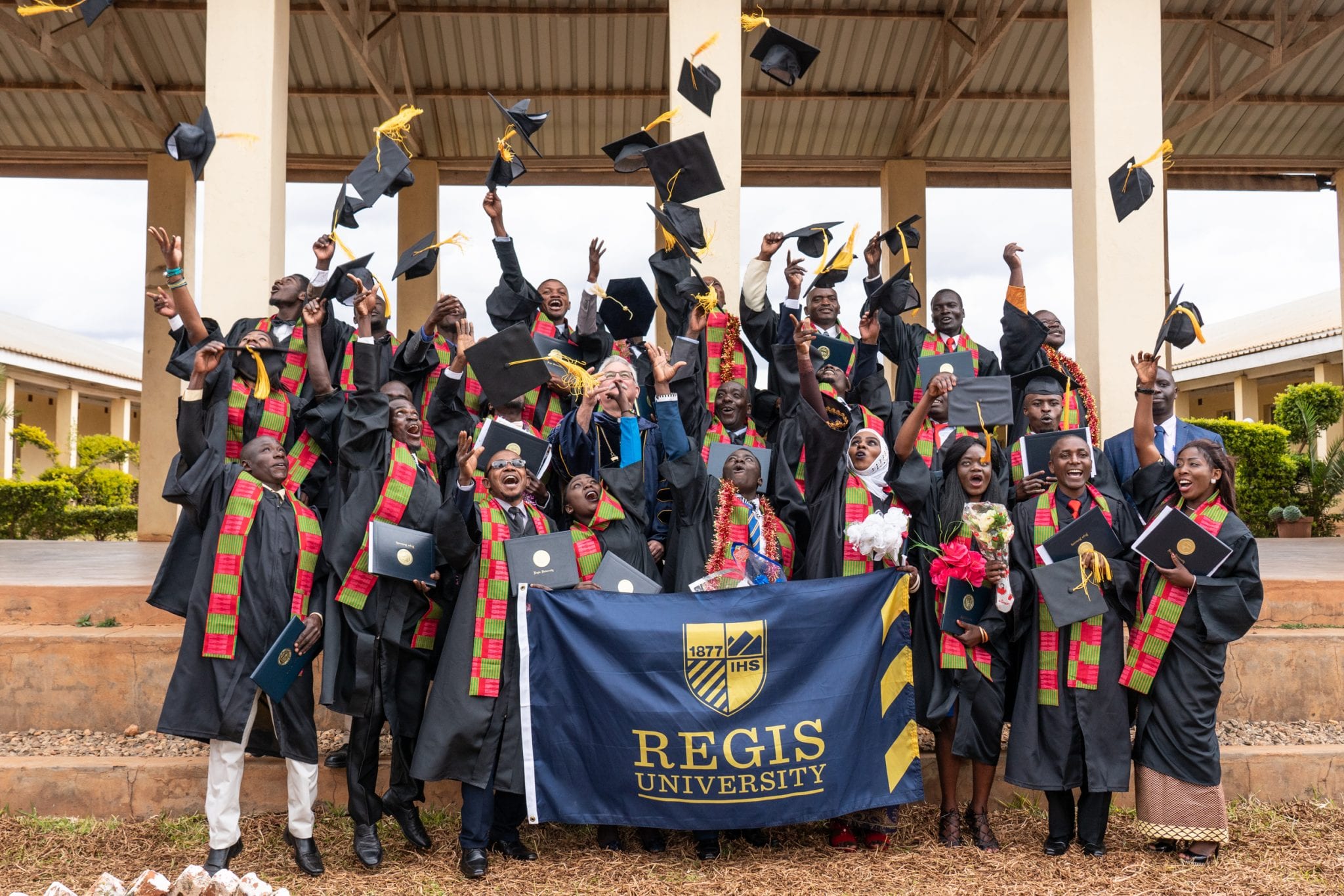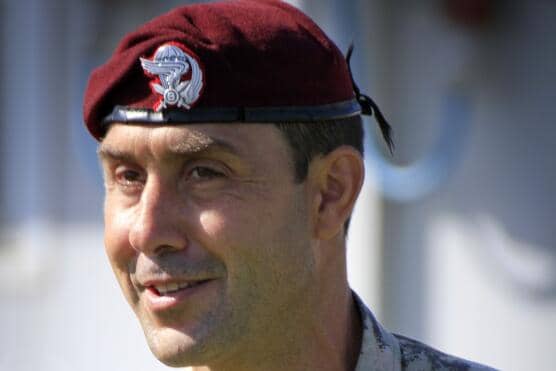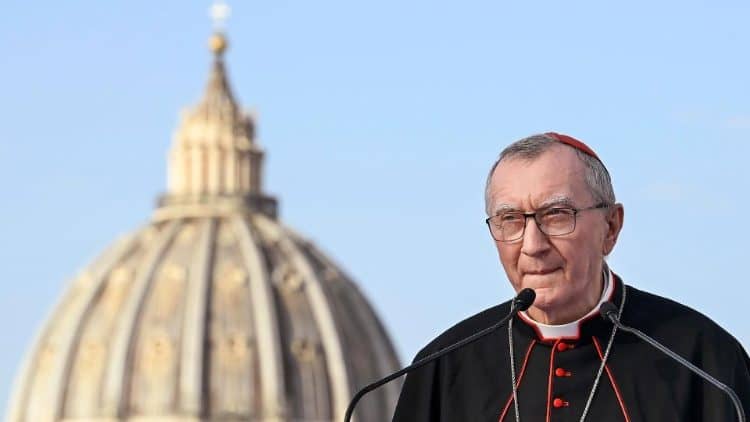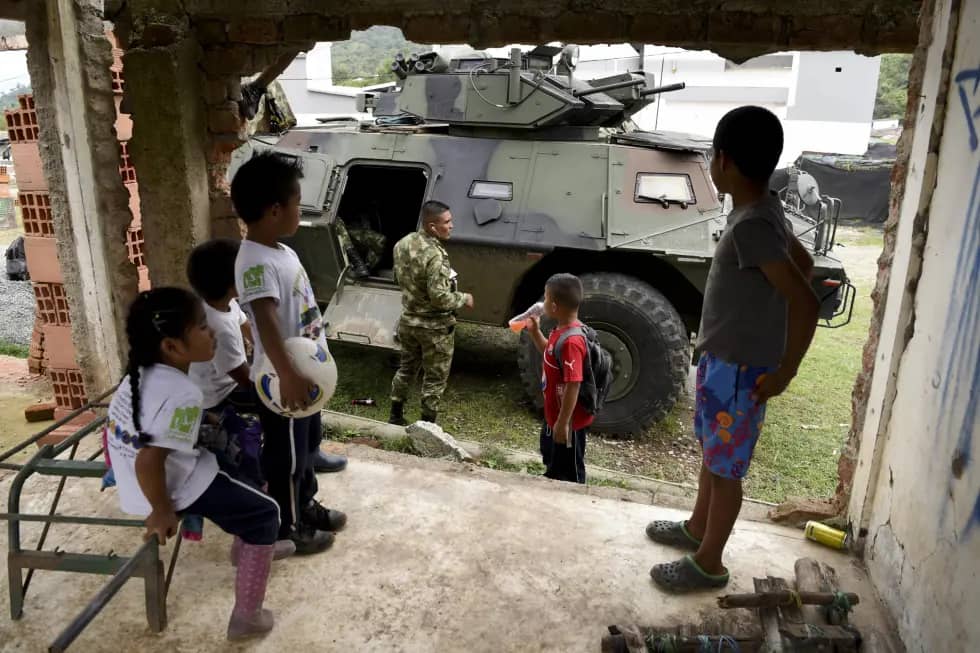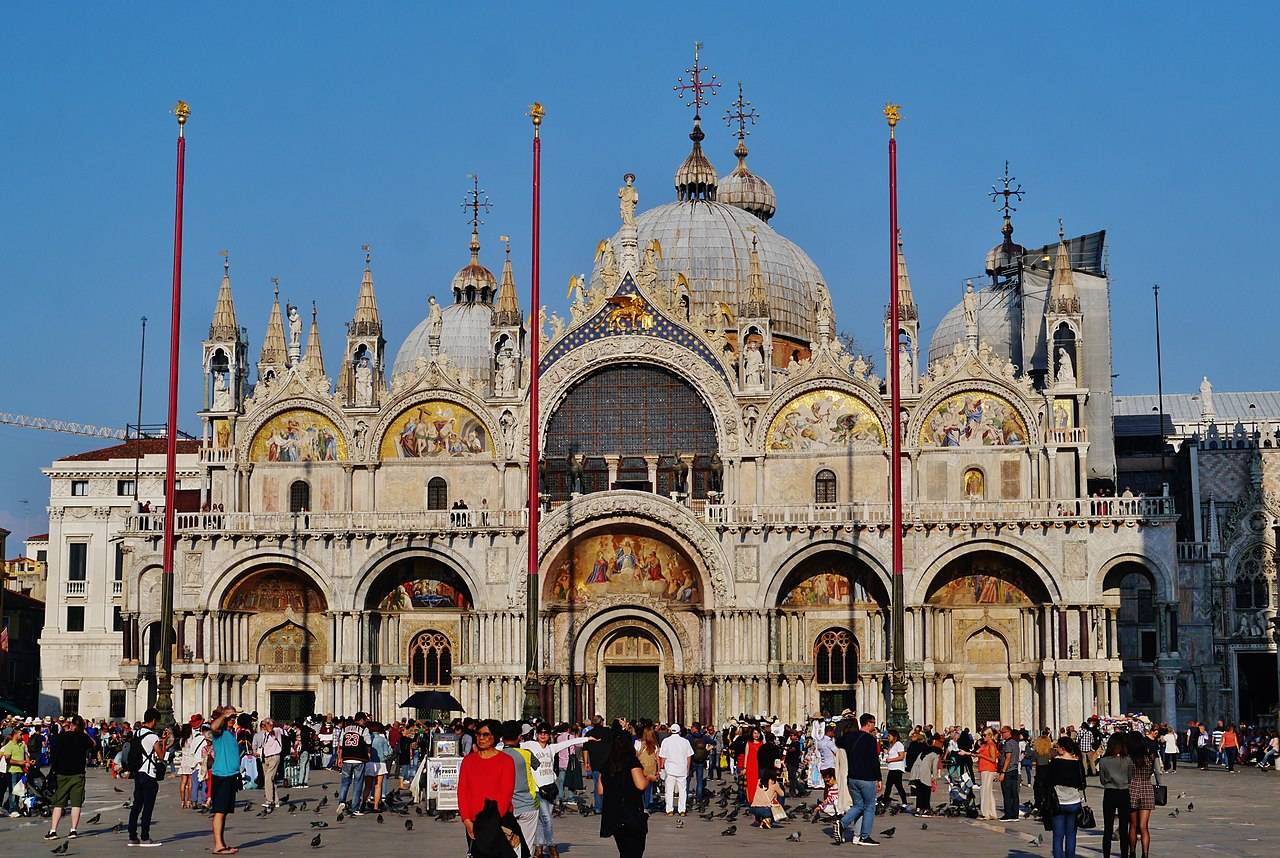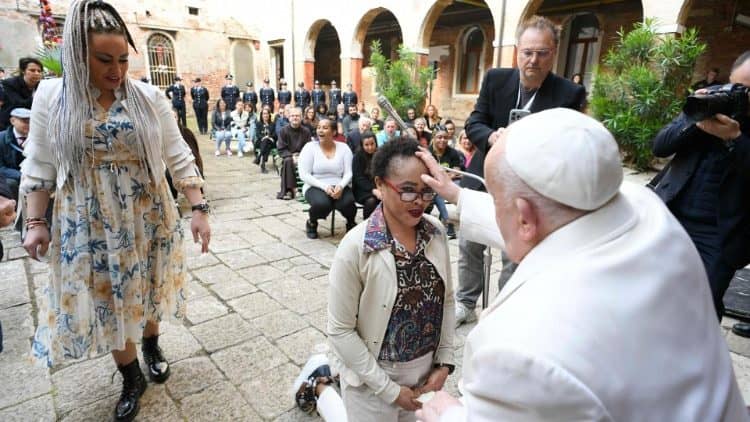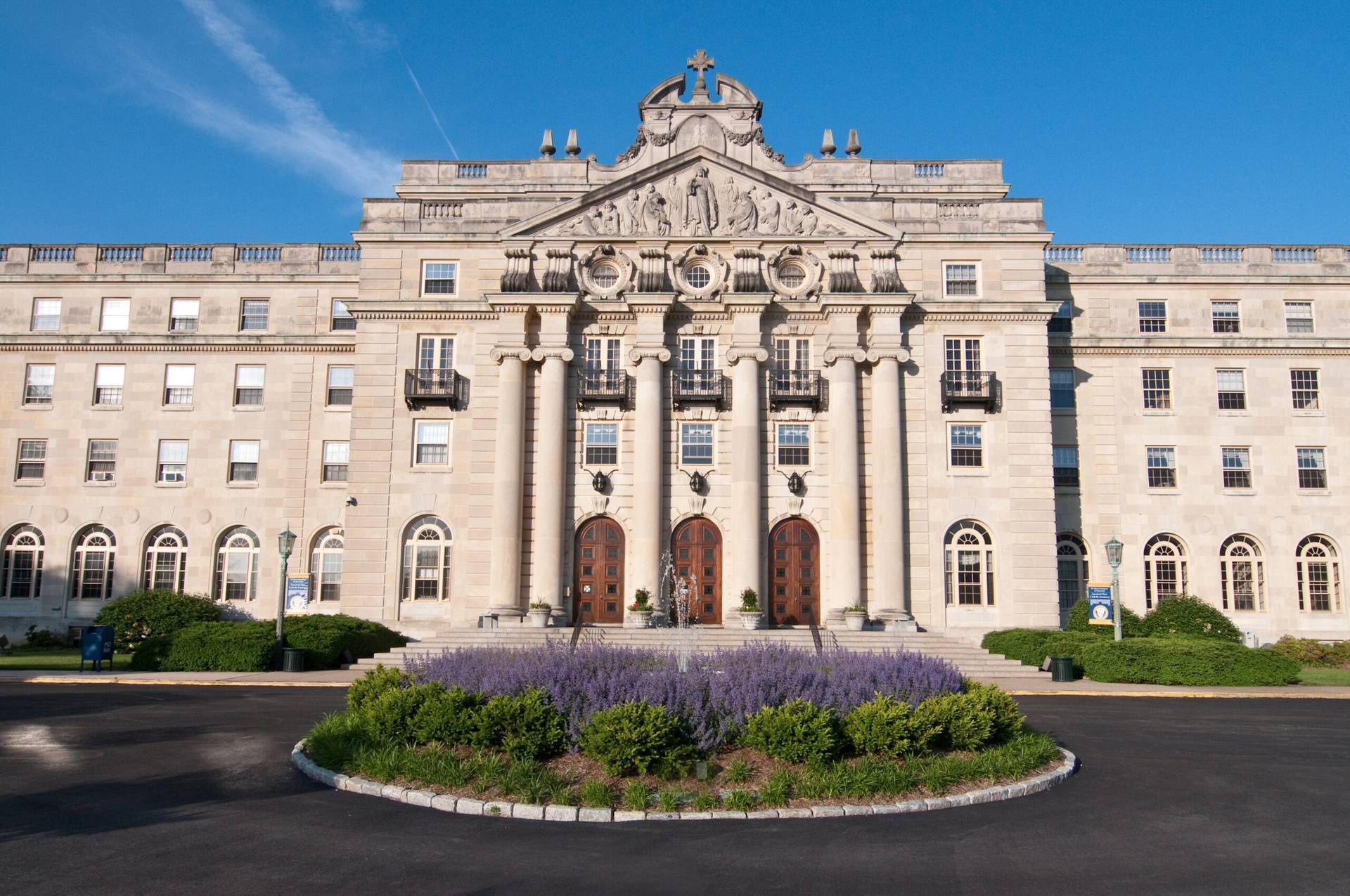DENVER, Colorado – In the Western imagination, a displaced persons camp in a “third world” nation such as Kenya signifies unrelenting misery and want. Few would imagine people happily pursuing advanced degrees with a laptop, but a surprising number of residents are doing just that thanks to a program called “Jesuit Worldwide Learning.”
The idea is “to provide equitable high-quality tertiary learning to people and communities at the margins of societies.” Its underlying goal is to help “create a more peaceful and humane world.”
More than 5,000 people have gone through the program from places as disparate as refugee camps in Malawi, Kenya, Sri Lanka, Afghanistan and Northern Iraq. They come from more than twenty countries including new countries such as South Sudan.
Jesuit Father John P. Fitzgibbons, President of Regis University in Denver, recently returned from handing out diplomas in Malawi and Kenya.
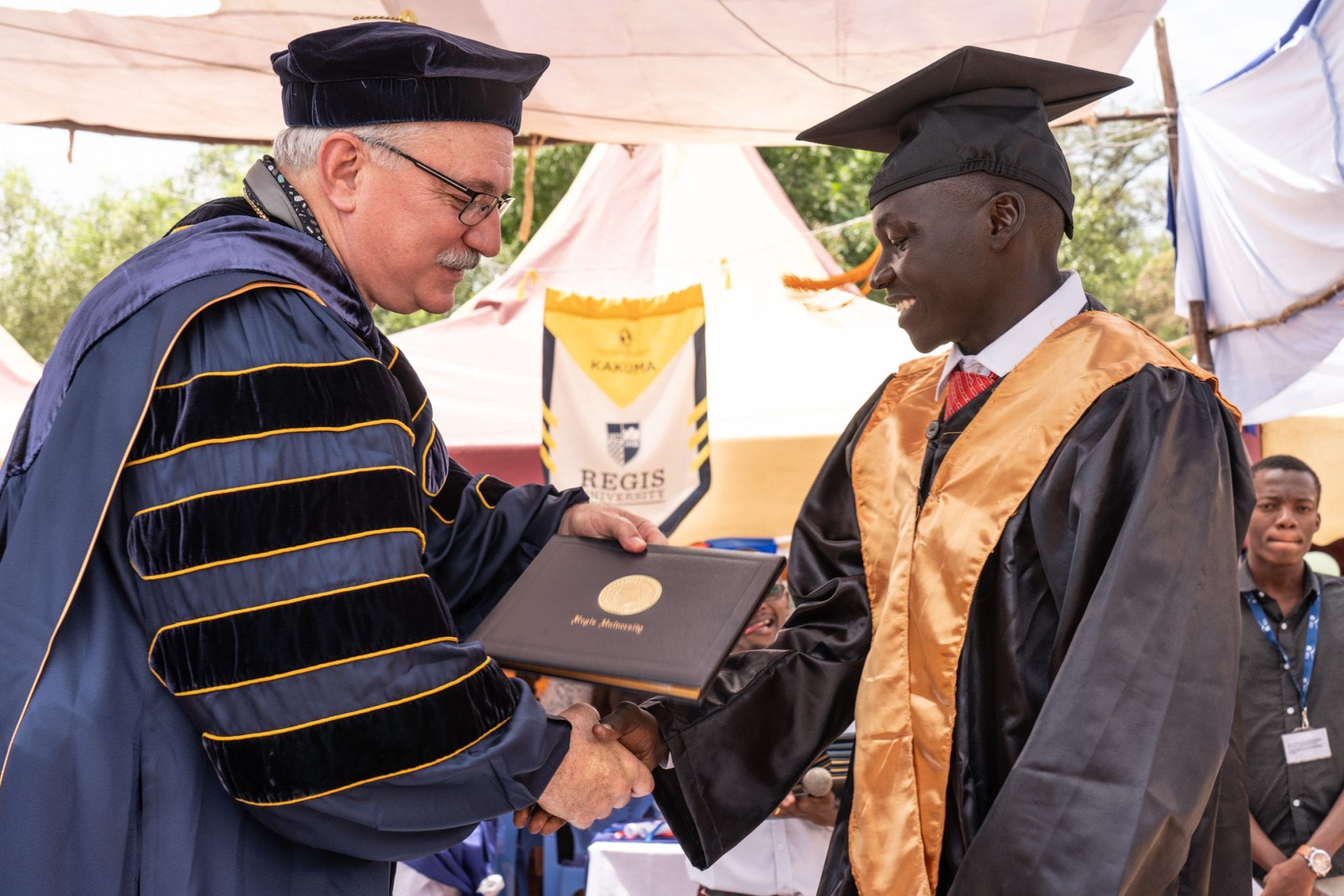
The program, he said, is challenging. For one thing, students are required to complete all the coursework in three years. Each class is completed in eight weeks. It’s done in English, and for some it’s their fourth or fifth language.
To be admitted, students have to prove their language skills with an essay, so some of those whose English isn’t quite up to snuff in the meantime can enroll in certificate programs in community service and development and social work.
Fitzgibbons says that “almost by default, they become leaders in the camp because they’re really well educated.” While the core curriculum is the humanities, as he says, “it’s really a Jesuit core curriculum,” which puts students on one of two paths. Teaching and social work is the most obvious outcome, but business is the other.
Many of the men choose business, but Fitzgibbons says the women go for business more and more as well. Whichever path they choose, he said, their communities benefit. Camp infrastructure depends on their leadership, and they often run the school system. Even if it’s only part-time, many graduates teach for a period of time.
Graduates also start businesses as most of the host countries for these refugee and displaced persons camps don’t allow work outside of the camp. Their ingenuity is on display as they must set up their own economy and infrastructure.
Problems and challenges
As one might imagine, Fitzgibbons said, students live with circumstances that aren’t necessarily conducive to learning. There is no beautiful tree-lined college campus with a huge university library containing quiet stacks. Instead, these are vast camps with miles to cross to get from A to B. One of the places Fitzgibbons visited was Kakuma camp in Kenya, where he said “180-200,000 souls fluctuate.”
“At least 10 countries are represented in the camp, from every religious background. Some are well educated and some are not,” he said. “There are tribes and communities that have been traditional enemies that have to live right next door to each other.”
On top of human conflict, everything from movement to electricity can be an issue.
Fortunately, Fitzgibbons says that the technology has morphed in these ten years from solar-powered laptops and desktop computers to solar-powered tablets which are now ubiquitous and very portable. As a result, students don’t need a grand library and big buildings with classrooms as the courses are downloaded, and they have access to the complete Georgetown and Regis libraries.
Every camp also has an “Arrupe Center,” named for the late Jesuit Superior General Father Pedro Arrupe, which has a writing center equipped with professional tutors to get students who might be less tech savvy up to speed, as well as those who need a little help writing essays in English.
Maybe the biggest obstacle is that there are 150 applications for every one seat. As Fitzgibbons says, “It’s a big deal.”
No doubt the challenges are real. There are also generators on site for when the power goes down, for instance, and they’re upgrading batteries in the tablets.
Students have become habituated to difficulties a Western learner doesn’t have to face. However, Fitzgibbons says that it’s not something they’re interested in talking about.
“They’re very gregarious. They don’t like to talk about their hardships very much,” he said. “They carry many burdens, any of which would do me in. They’re resilient, motivated people.”
Problems in U.S. policy
One new issue that has arisen for the program is the Trump administration’s hostility towards refugees and visas, specifically for those coming from certain Muslim majority countries. There are now two Somali sisters who have the diploma, and whom Fitzgibbons describes as “truly excellent students,” and he says there is a benefactor familiar with the program who wants to pay all their costs, tuition, board and fees, for them to attend Regis in Denver.
Yet with the new policies they can’t get visas, so Regis has contacted their sister school, Campion College of Regina University in Canada, which hopefully will be able to host the sisters instead.
These students have 45 credit hours they can use at universities all over the world, but it’s getting tough to get them into the U.S. Fitzgibbons questions the logic of keeping out people who have proven their worth time and time again.
Concerns rather than full-blown fears
Fitzgibbons says he’s not worried about the program in the narrow sense of it being ended due to anti-migration sentiment or anything host countries might do to the camps themselves. After all, he said, “if you have access to the internet and a computer than the program is less vulnerable.”
The goal is resettlement, because the students, like everyone, “want to live in a safe place with human dignity and hope.”
The students, he said, feel an investment in the program and a sense of ownership. One of his worries though is that even though the students are “incredibly determined, tough, resilient, consummate survivors… I do worry about resettlement … I do worry about the West really missing the boat on understanding how good these people are.”
Fitzgibbons said that while the program uses typical Western notions of education, they’re constantly renewing it to make sure it’s “supple and growing and developing and adapting” to what students in diverse settings want and need.
In the end, he says the program doesn’t want to miss out on what they have to offer, adding that Western nations should keep in mind the simple fact that “they have a great deal to teach us.”
